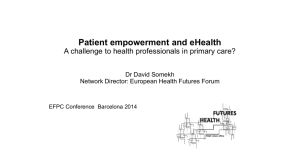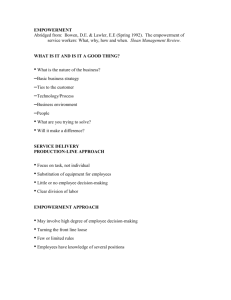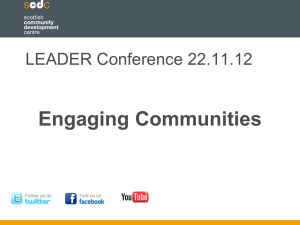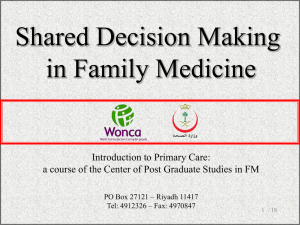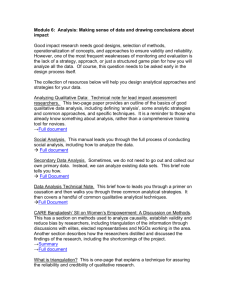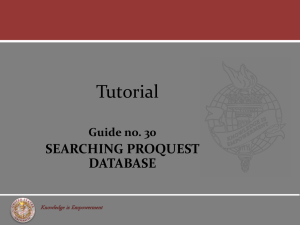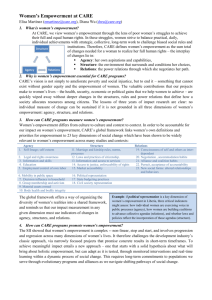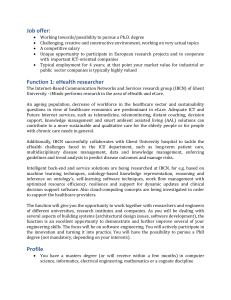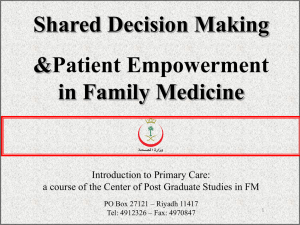Slides
advertisement
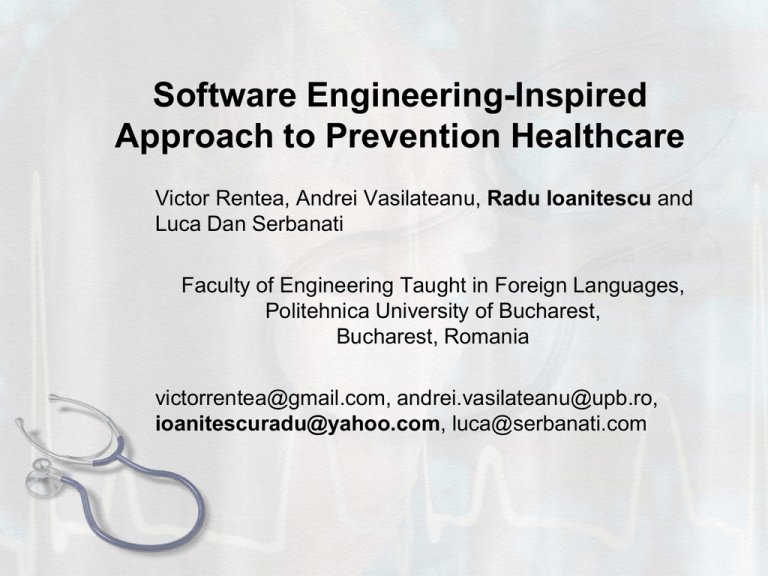
Software Engineering-Inspired Approach to Prevention Healthcare Victor Rentea, Andrei Vasilateanu, Radu Ioanitescu and Luca Dan Serbanati Faculty of Engineering Taught in Foreign Languages, Politehnica University of Bucharest, Bucharest, Romania victorrentea@gmail.com, andrei.vasilateanu@upb.ro, ioanitescuradu@yahoo.com, luca@serbanati.com State of the art Increased health expenditures: • increasing chronic conditions, in young people • global population ageing Proposed solutions o Care coordination o Patient empowerment Patient empowerment in prevention: avoid even the start of a chronic condition Traditional approaches Existing eHealth IT systems: • focus on acute disease care • favor diagnosis and treatment of current symptoms Future eHealth systems: -Leverage of EBM data: randomized clinical trials resulting in clues on the best attitude to follow, quantified in Relative Risks (RR%) -Supporting patient empowerment -Focus on prevention and monitoring Software Engineering vs Prevention Healthcare • Many conceptual similarities: • Critical decisions based on an abstract model built within multiple iterations • Partial knowledge problems in an ever unpredictable ever-changing universe: business requirements and health state changes • Emphasize their continuous nature • Use of proven patterns and guidelines • Concern oriented approach to software analysis and design projected to health state management Conceptual System Design • Concern-oriented design • Main components • Personal Health Record (PHR) • Past and present tenses of the patient’s health state • Latest information, authoritative or not (self-gathered) • Draws data from the EHR • Avatar • Leading agent, coordinator • Interacts with the user, adapts to his personality • Tries to increase its impact on the user’s behavior • Virtual Health Assistant (VHA) • Distributed maintenance and responsibility of KBses Patient-Centric Virtual Organization Conclusion • Software Engineering aproach to prevention healthcare • Conceptual design of a concern-oriented multi-agent system for monitoring the health state and stimulating the patient empowerment • Unlike most existing agent systems, the control loop does not include any medical staff • quicker adoption, lower costs and greater scalability • Emphasis on prevention targeted at persons with no or limited symptomatology. • Detect incipient stages of an unsuspected illness • Provide alternatives to prevent its debut
